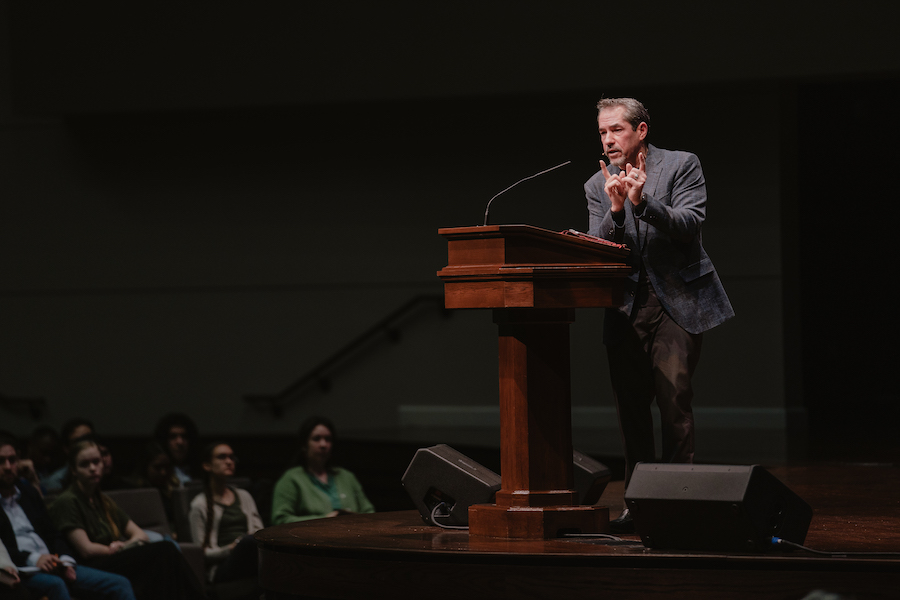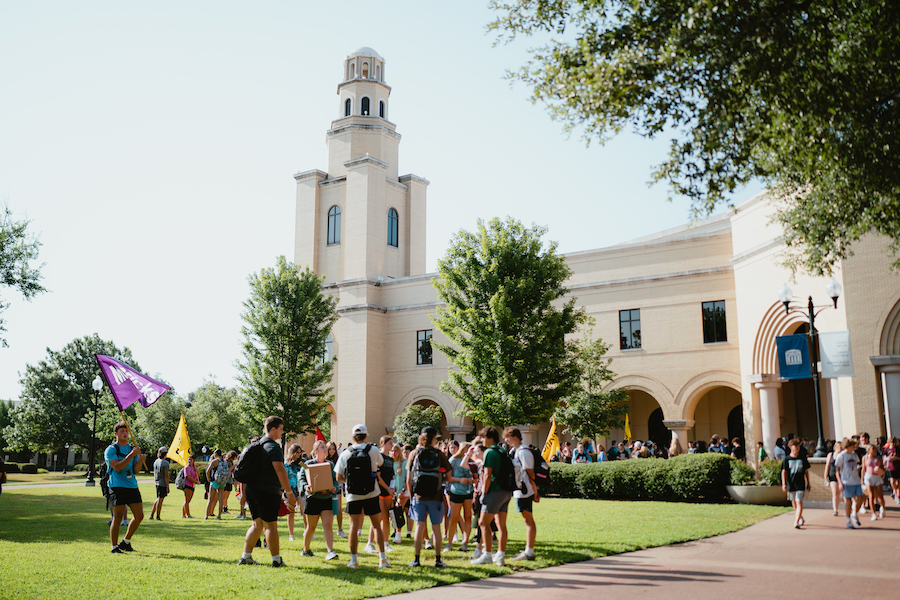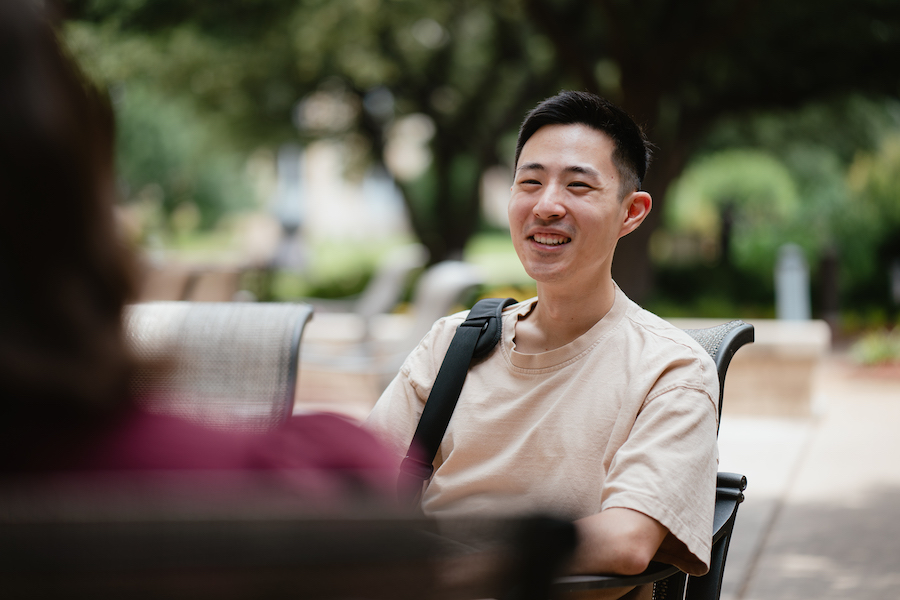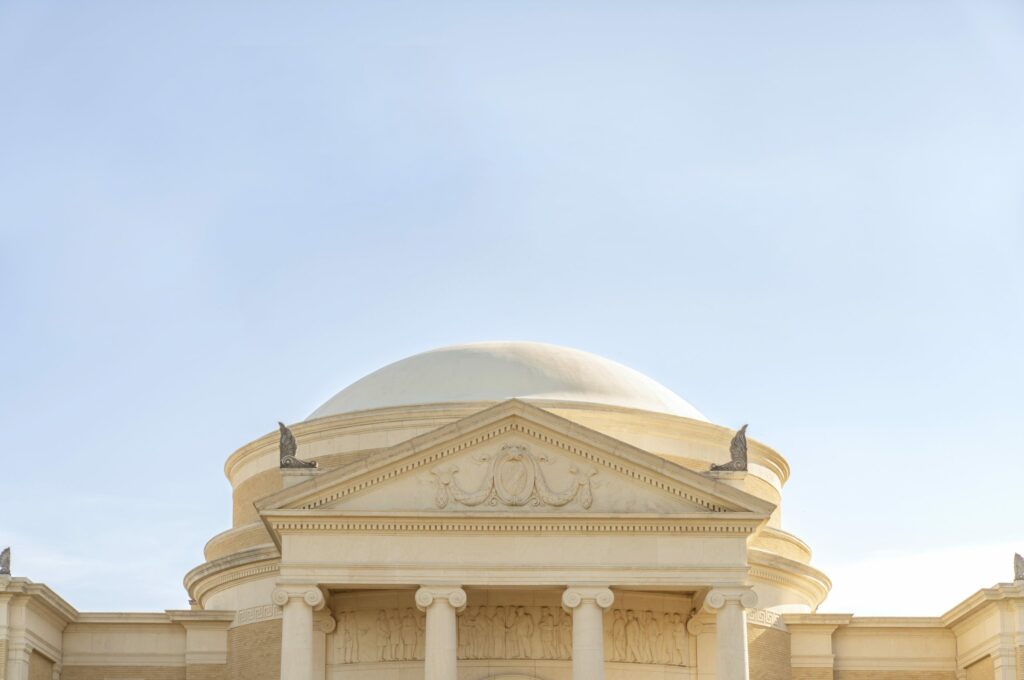Ortiz explains importance of bridging gap between missional training, the church

A missional understanding of theological education and training is necessary and important, Michael Ortiz, vice president for Global Ministries at Dallas Theological Seminary (DTS), said during his Feb. 6 chapel message at Southwestern Baptist Theological Seminary.
In his introduction of Ortiz, President David S. Dockery said he knew of “no one who has his finger on the pulse of what God is doing in theological education around the globe in a more informed and thoughtful way than Michael Ortiz.” Dockery added that Ortiz is “in touch with both formal and informal approaches to theological education, and how people are being prepared to serve God in every continent.”
Ortiz also serves as executive director of the International Council for Evangelical Theological Education (ICETE), which he estimated has reached and impacted more than 300,000 students.
“ICETE is really about two things,” he said. “Quality: what does sound training in theological education look like, and connectiveness: how do we connect those around the world that are doing the training so they can learn from each other, glean new ideas, and improve their programs around the world?”
Ortiz posed a question to the crowd, “What can we do to bridge the gap between training and the church?”
“As we think about training and theological education, can we locate it within a missiological framework so that students, teachers, administrators, and leaders of training programs realize that their work is part of the whole biblical narrative and whole redemptive plan of God?” he asked.
With a message titled, “Global Reflections on Theological Education: The Church Strengthened for Missions,” Ortiz preached from 1 Thessalonians 2:19-20, where Paul asks the church in Thessalonica a question.
“It is a rhetorical question there that he asks his audience,” Ortiz explained. “What Paul is doing here is he glories in their persevering faith on them staying on their mission for the sake of Christ until He returns. Their unwavering missional focus speaks about Paul’s life, his faithfulness, and the one that he is worthy of wearing that crown of victory when Jesus Christ returns.”
Ortiz stressed that followers of Christ need to have a missional understanding of the church embedded within programs.
“The very lifeblood of theological education is the church,” he professed. “I think theological education comes most alive when it is serving the Bride of Christ, the church, and focused on that.”
Ortiz listed four recent global reflections on theological education.
“The future of theological education will depend on the voices its willing to embody and elevate,” he said. “What are some of the voices that we need to be including in our training programs that will help theological education become even more relevant to the church and society.”
Ortiz said impact must be measured beyond the output delivered.
“For you in this institution, how is it that what you’re grasping and learning, how is the Lord using that in your life for real transformational impact because that is what the world needs?” he questioned.
Ortiz reflected that he has discovered barriers between formal and informal aspects of training, and he said that needs to be flattened.
“We need to draw each other around this one common aim: our missional understanding of the church,” he stated. “This is not about replacement, but about reinforcement. How is it that we can work together better to reinforce each other?”
Ortiz’s last reflection revolved around the topic of relationship-driven “amigos.”
“We need to take risks to develop relationships with those who don’t look, sound, or dress like us, yet they are on fire with the church globally, he expressed. “They want a missional understanding of training for the sake of the church and the Bride of Christ. That requires dialogue, shared hopes, and mutual trust.”
Ortiz was born in New York City to Cuban immigrants. He holds a law degree from Southern Methodist University in Dallas, Texas. After earning his degree, he developed his practice in Florida, where he later submitted his life to Christ. In 2015, he earned a Doctor of Philosophy from Seminario Teológico Centroamericano (SETECA) following a Master of Theology, which he earned from Dallas Theological Seminary in 2008.
Ortiz’s entire message can be viewed here.
Chapel is held every Tuesday and Thursday at 10 a.m. (CT) in MacGorman Chapel on the campus of Southwestern Baptist Theological Seminary and TBC. Chapel may be viewed live at swbts.live.



